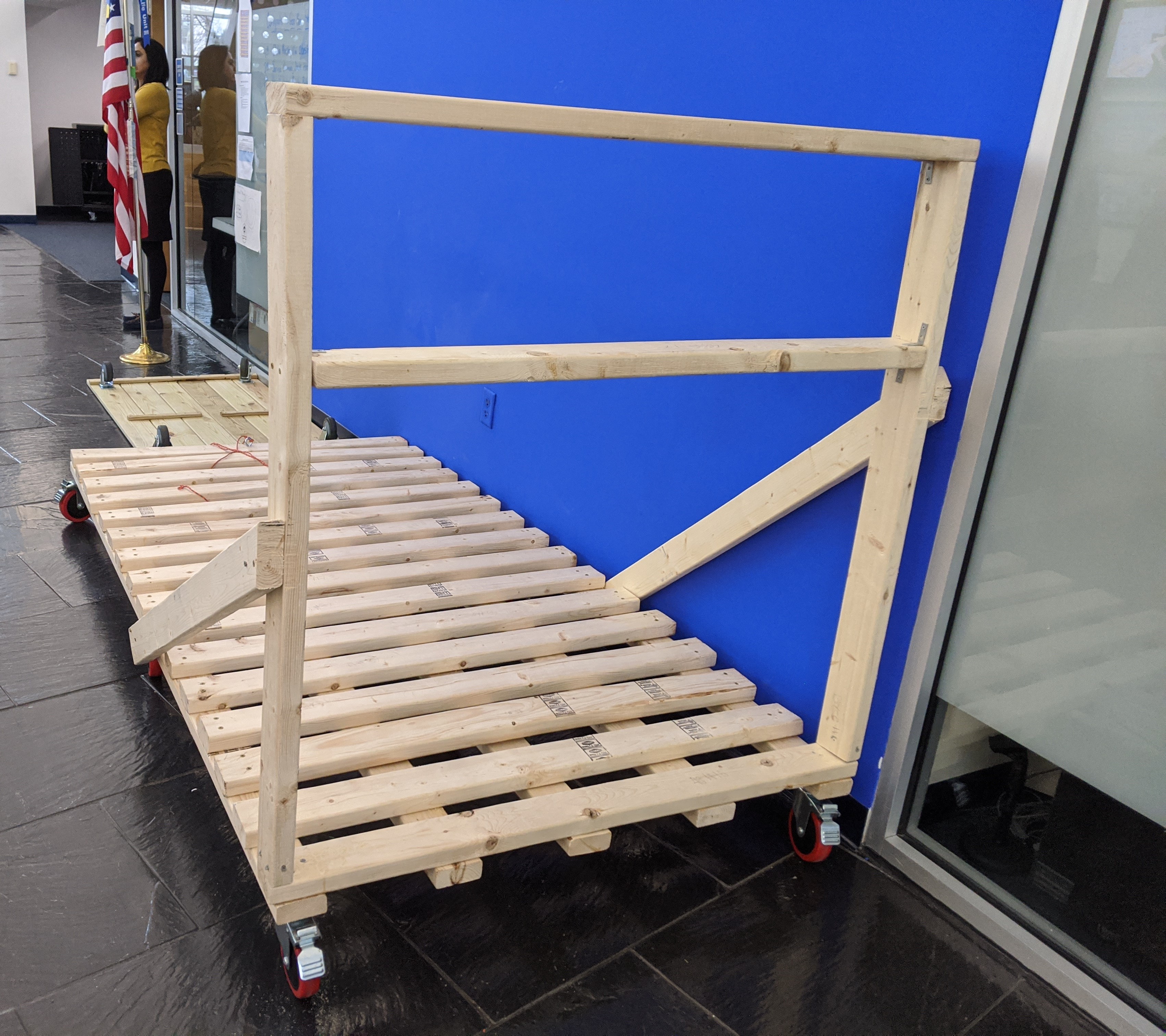Cultivating And Destroying Agency
Originally published on LessWrong June 29th, 2022.
Something that really surprised me about high school is how little agency the majority of the students there had. This was even more pronounced among the students at the local magnet school, Academies of Loudoun; they were selected for on intelligence and work ethic, but generally had a “the world affects me” mindset as opposed to “I affect the world”. It took me a while to understand what led to this, and over time my way of describing this went from “NPCs/sheeple (somewhat joking)” to “NPCs/sheeple (almost completely serious)” to my current way of describing it, which is “kids who had the agency burned out of them“.
In this post, I’ll go through the fully general way of increasing agency, some actual examples of that, and what it was that burned the agency out of my peers.
Building Agency
The academic term for agency, or the “I affect the world” vs. “The world affects me” continuum is internal vs. external locus of control, and I’ll be using that interchangeably with agency.
Charles Duhigg’s Smarter Faster Better has a chapter dedicated to locus of control. He talks about how the Marines restructured their basic training around building an internal locus of control:
Krulak [The head of the Marines] believed basic training needed to change. “We were seeing much weaker applicants,” he told me. “A lot of these kids didn’t just need discipline, they needed a mental makeover. They’d never belonged to a sports team, they’d never had a real job, they’d never done anything. They didn’t even have the vocabulary for ambition. They’d followed instructions their whole life.”
(…)
This was a problem, because the Corps increasingly needed troops who could make independent decisions… In today’s world, that means the Corps requires men and women capable of fighting in places such as Somalia and Baghdad, where rules and tactics change unpredictably and marines often have to decide—on their own and in real time—the best course of action.
This is one of two times I’ve seen an organization explicitly try to maximize agency in its members; the second is the Atlas Fellowship.
Duhigg went on to explain what researchers had found to be the core of creating an internal locus of control; choice. Presenting people with a choice, as opposed to just picking something for them, gives them a feeling of power over the outcome, instead of someone else picking their path for them.
If [Krulak] could redesign basic training to force trainees to take control of their own choices, that impulse might become more automatic, he hoped. “Today we call it teaching ‘a bias towards action,’ ” Krulak told me. “The idea is that once recruits have taken control of a few situations, they start to learn how good it feels.”
Building agency is a feedback loop. When people are agentic and pursue their own goals as opposed to executing the default strategy (which I’ll talk about later), they will be more agentic in the future if what they’ve done works. In environments like Marine basic camp, the environment is shaped to reward agency and independence; that by itself goes a long way towards encouraging agency.
So, to train the exercise of choice in basic training, the Marines began to add open-ended tasks into training.
In his fourth week of training, for instance, Quintanilla’s platoon was told to clean the mess hall. The recruits had no idea how. They didn’t know where the cleaning supplies were located or how the industrial dishwasher worked. Lunch had just ended and they weren’t sure if they were supposed to wrap the leftovers or throw them away. Whenever someone approached a drill instructor for advice, all he received was a scowl. So the platoon started making choices. The potato salad got tossed, the leftover hamburgers went into the fridge, and the dishwasher was loaded with so much detergent that suds soon covered the floor. It took three and a half hours, including the time sent mopping up the bubbles, for the platoon to finish cleaning the mess hall. They mistakenly threw away edible food accidentally turned off the ice cream freezer, and somehow managed to misplace two dozen forks. When they were done, however, their drill instructor approached the smallest, shyest member of the platoon and said he had noticed how the recruit had asserted himself when a decision was needed on where to put the ketchup. In truth, it was pretty obvious where the ketchup should have gone. There was a huge set of shelves containing nothing but ketchup bottles. But the shy recruit beamed as he was pleased.
The other challenge mentioned:
Midway through the Crucible, the recruits encountered a task called Sergeant Timmerman’s Tank. “The enemy has chemically contaminated this area,” a drill instructor shouted, pointing to a pit the size of a football field. “You must cross it while wearing full gear and gas masks. If a recruit touches the ground, you have failed and must start over. If you spend longer than sixty minutes in the pit, you have failed and must start over. You must obey your team leader. I repeat: You may not proceed without a direct verbal order from the team leader. You must hear a command before you act, otherwise you have failed and must start over.
Quintanilla’s team formed a circle and began using a technique they had learned in basic training.
“What’s our objective?” one recruit said.
“To cross the pit,” someone replied.
“How do we use the boards?” another recruit said, pointing to planks with ropes attached.
“We could lay them end to end,” someone answered. The team leader issued a verbal order and the circle broke up to test this idea along the border of the pit. They stood on one board while hauling the other forward. No one could keep their balance. The circle reformed. “How do we use the ropes? a recruit asked.
“To lift the planks,” another said. He suggested standing on both boards simultaneously and using the ropes to lift each piece in tandem, as if on skis.
The Marines complement those [psychological] insights by helping us understand how to teach drive to people who aren’t practiced in self-determination: If you give people an opportunity to feel a sense of control and let them practice making choices, they can learn to exert willpower. Once people know how to make self-directed choices into a habit, motivation becomes more automatic.
Moreover, to teach ourselves to self-motivate more easily, we need to learn to see our choices not just as expressions of control but also as affirmations of our values and goals. That’s the reason recruits ask each other “why”—because it shows them how to link small tasks to larger aspirations.
Nysmith Electives
My middle school, Nysmith, did an amazing job of having these open-ended challenges. The most notable were from my two eighth grade electives: Maker Lab and How To Make Or Break An Empire.
Maker Lab’s final project was multi-step.
- We each came up with something we wanted to build in the class. Mine was a trebuchet; I remember my friend’s pick was little houses for bats.
- Everyone gave a presentation on their idea to the class.
- We voted on our favorite build ideas; the most popular, which in our class was just “build a cart”, would then be built by the class.
- Individually create a custom design w/ blueprints for how you’d build the cart, using the CAD program Autodesk Inventor.
- Break into groups of four, and then actually build the cart, with access to the many power tools and spare materials that our teacher had lying around.
Here’s what my group made:

My math teacher called this the most ridiculously over-engineered thing he’d ever seen. It could support over a thousand pounds.
For Make Or Break An Empire, our final project was a detailed wargame of the Thirty Year’s War.

My character info and win conditions.

My spy sent me this from an enemy group chat; redacted for my own privacy.
These were activities that had:
- Little to no adult direction/instruction
- Extremely high quality ceilings
- Clear measures of success that weren’t “please the teacher to get a good grade”
- Required initiative and the ability to work with other people for greater odds of success.
All of that forces kids to actually figure out how to complete difficult, open-ended tasks on their own. Some other high-agency, low-direction projects at Nysmith:
- A grade-wide mock trial of Frankenstein, after reading the book
- The science assignment to build a large Rube Goldberg machine, for which we were allowed to have incendiary components
The only things I’ve seen in all of my time at high school that’s anywhere near as good as Nysmith projects at teaching agency are AP Seminar, which is still significantly more constrained, formulaic, and boring, and the version of The Darwin Game that I helped run for our AP Computer Science class.
Personal activities
For something to increase your agency, it must require agency and succeed. For me, those were things like:
- Signing up to take the AP BC Calculus exam two years ahead of schedule, and teaching myself the material
- That Time I Almost Snuck Into Homecoming
- Buying Visa gift cards for making online purchases
- Asking people out, and generally being socially agentic (which Evie Cottrell describes well here)
- Putting my own money into stocks, and getting 15x returns during the whole Gamestop thing.
For you, this should be things in your general area of expertise, but outside your social/societal comfort zone. Ideally, it would violate at least one social/institutional norm.
What’s with the kids?




Agentic people optimize for themselves; they think about what it is in life they want, and they do what it takes to get it.
That doesn’t work when you have, in the worst case, zero power whatsoever in your own life. This is the power that children have. Most of the time, this isn’t all bad; you just have “make sure my parents don’t get mad at me” permanently at the bottom rung of your hierarchy of needs. The worst case, however, is your parents forcing you to do exactly what they want you to do, in every situation, by punishing you for every single deviation from their norm.
Probably 60% of the students at Academies aren’t allowed to date. It’s easy for your parents to enforce that when they read through all of your texts, track your location with Life360, and don’t let you leave the house unsupervised. I have a friend who isn’t allowed to hang out with friends of the opposite sex. Her parents aren’t letting her go to college out of state, or so much as move out until she’s married. She can’t do anything to stop them; any fighting back will result in even worse conditions for her.
This is what I meant by “the kids in my high school have the agency burned out of them”. It’s an adaptive strategy, when the only thing that can bring you personal happiness is by pleasing your parents. Trying to learn to be agentic in their school with their parents is like trying to learn to be an independent thinker in 1984. Not a very conducive environment.
I’ve recently been reading a work of fiction that takes place in a dystopia where authorities punish infractions through literal torture. It’s somewhat counterproductive; when exposed to pain, people lose the ability to be creative and agentic, with all other thought processes replaced with MAKE IT STOP. This is what I’ve seen happen to my friends, to my peers, to people that could legitimately change the world if they were in a more competent situation. It breaks my heart.
School is a slightly easier environment to navigate, but is just as bad at producing agency. Something that helps is to see through the abstraction of “rules” and instead have a more specific model of actors and behaviors, like: “if I go to Ms. Nigro’s class during Advisory, she’ll report me to the front office, but if I instead spend my time in Ms. Novi’s classroom, nobody will be the wiser.” The Lesson To Unlearn, and the other recommendations in lsusr’s Advice For High School, are good at teaching you to think independently from The System.
One last thing.
My favorite section from Smarter Faster Better is this:
Researchers were studying why some seniors thrived inside such facilities, while others experienced rapid physical and mental declines. A critical difference, the researchers determined, was that the seniors who flourished made choices that rebelled against the rigid schedules, set menus, and strict rules that the nursing homes tried to force upon them.
Some researchers referred to such residents as “subversives,” because so many of their decisions manifested as small rebellions against the status quo. One group at a Santa Fe nursing home, for instance, started every meal by trading food items among themselves in order to construct meals of their own design rather than placidly accept what had been served to them. One resident told a researcher that he always gave his cake away because, even though he liked cake, he would “rather eat a second-class meal that I have chosen.”
A group of residents at a nursing home in Little Rock violated the institution’s rules by moving furniture around to personalize their bedrooms. Because wardrobes were attached to the walls, they used a crowbar—appropriated from a tool closet—to wrench their dressers free. In response, an administrator called a meeting and said there was no need to undertake independent redecorations; if the residents needed help, the staff would provide it. The residents informed the administrator that they didn’t want any assistance, didn’t need permission, and intended to continue doing whatever they damn well pleased.
These small acts of defiance were, in the grand scheme of things, relatively minor. But they were psychologically powerful because the subversives saw the rebellions as evidence that they were still in control of their own lives. The subversives walked, on average, about twice as much as other nursing home residents. They ate about a third more. They were better at complying with doctors’ orders, taking their medications, visiting the gym, and maintaining relationships with family and friends. These residents had arrived at the nursing homes with just as many health problems as their peers, but once inside, they lived longer,reported higher levels of happiness, and were far more active and intellectually engage.
“It’s the difference between making decision that prove to yourself that you’re still in charge of your life, versus falling into a mindset where you’re just waiting to die,” said Rosalie Kane, a gerontologist at the University of Minnesota. “It doesn’t really matter if you eat cake or not. But if you refuse to eat their cake, you’re demonstrating to yourself that you’re still in charge.” The subversives thrived because they knew how to take control, the same way that Quintanilla’s troop learned to cross a pit during the Crucible by deciding, on their own, how to interpret the rules [as was shown earlier in the chapter].